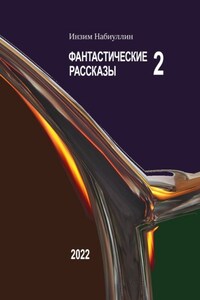Even over dark matter
the light mind reigns supreme.
Prologue
The motion of the solar system around the center of the galaxy is similar to the Earth's orbit around the Sun. However, the Sun and about four hundred billion other stars, as well as other objects in the system, do not revolve around a star, but around a supermassive object called a black hole. Such a strange name was given to them by the presence of their giant gravity, which does not allow even light to go beyond its limits. At the center of our Milky Way galaxy is just such a mysterious object. Such massive objects are theoretically at the center of all such structures. Their monstrous gravity, binding all the atoms of the system and counteracting its speed of orbital motion of the objects themselves, coupled with the gravitational influence of all on each other, hold in their orbits "tenants" of the common house called the galaxy.
The Sun orbits at a speed of about 230 kilometers per second, which is enough to prevent our star from being swallowed by a black hole in the center of the galaxy. The time it takes for our star to complete a complete revolution around the center of the Milky Way is called a galactic year. For each of the planets in our system, the year is different because of the different lengths of their orbits. Likewise, the galactic year is different for each star in the Milky Way.
For the Sun, a galactic year is 220-230 million Earth years. In other words, if we were to measure time by this galactic "clock," the Earth would be about 16 galactic years old, the Sun would have formed about 20 years ago, and the Universe would be only about 60 years old.
Counting from the Big Bang, the current "year" will end in 74 million years. So it's only the beginning of August.
If we look from the future to the past, the history of mankind is a kind of labyrinth, if we judge that the truth is "whatever happens is for the best". And how could it be, for we know of no other option. And now imagine that this very "for the best" is already a certain path, along the labyrinths of which mankind must pass to a certain goal. And again – may not pass. That is, not finding the right line, we get stuck, slow down, lose time and, if this time is determined by a timer, we may not make it in time. Not in time for a certain event to happen. For example, the largest asteroid is going to fall on the Earth or something else incredibly catastrophic is going to happen, and we have to achieve a certain development, create something, or be able to depart from the cradle of humanity, for example, to a near-Earth station or, say, to Mars. Why not. After all, global catastrophes have happened on Earth. For example, glaciation, ice ages could last up to 300 million years. Imagine that number. Perhaps some universal mind directs the development of civilization, and we must come to a certain goal. Perhaps we are led by God, perhaps by our own mind, perhaps by instinct, perhaps by no one. Just some probability of events gives one civilization to survive, while others are forced to perish. If there is natural selection in nature, why isn't there natural selection in global nature, that is, in the universe as a whole, relative to civilizations. After all, if every hundred years the Earth passed very close or very far from the Sun and global fires or general glaciation would occur as a consequence, then we would build a civilization with a different content. We would have developed other technologies, and we would have developed in a direction relative to this main problem. And if we are developing in the direction that we are, then we should draw the appropriate conclusions from it.
By and large, all inventions exist in nature, we only transform them for our understanding, perception and needs. For example, many in childhood played a game when two matchboxes are connected by wires and it is possible to "transmit" messages, vibrations. Sound, for example, echo or thunder, by itself, by the fact of its nature, speaks about the possibility of spreading to a great distance. And if we take into account the fact that our brain not only understands this world by consciousness, but also by some other structure of its own… For example, there are a lot of sound ranges that we do not consciously perceive, but they act on our organism, including the brain. Accordingly, if some complex life-support system folds the manifestations of nature necessary for the instinct of self-preservation into the understanding of our organism, including the brain, as useful, good or bad, harmful, then for the same life-support system there are responses, which we call conscious perception. That is, the roar of the leopard is dangerous, and the song of the nightingale is sweet. Accordingly, and our battle cry is perceived by comrades as strength and power, and for enemies – fear and wariness. And afterwards, in order to strengthen the mechanisms of self-preservation more and more, our organism, and most importantly – the brain, comes up with more and more new systems. Once it realized that it is better to make something out of improvised materials, such as stone, than to strengthen its paws and claws. And nowadays we fly into space, develop worldwide communication, cloning, atomic energy and much, much more. Consciousness systematizes the data received from the body, including through all senses, to increase our vitality and adaptation to the surrounding reality. Vitality and adaptation, also with the help of collected, systematized data, creating discoveries and inventions. It has always been a mystery, a difficulty, a dilemma – how to do it scientifically, how to do it technically? Mankind gradually came to understand the physical laws, including the transmission of signals through electrodynamics, for example, the discovery of Hertz allowed the invention of radio.
In the Future, we will recognize which version of the future we created in the past.
Chapter 1: The Pope's Revelation
For as long as I could remember, I had lived in the company of adults, as I later realized, employees of the secret research center where my father worked. My name was Rutra, but I rarely heard my own name, so I thought it was a title. Iris, or affectionately Iriska, was called Iris by everyone. I remember my mother sporadically, she was always away for a long time. I did not communicate with children, and there were none here, although many said that they would like to have the same child. My dad used to say: the technology is patented, get a license – and you're welcome.








